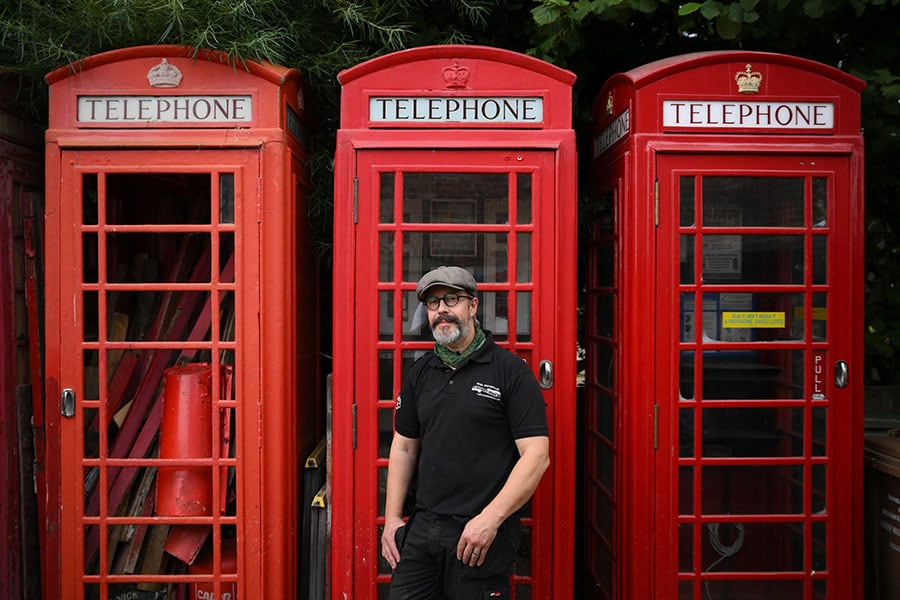
Britain's iconic red phone boxes get a new lease of life
Redundant red and other phone boxes are increasingly being adopted by local communities and converted into facilities such as mini libraries, visitor information stands and defibrillators
 Emblematic of the UK worldwide, these sturdy red pillars first rolled out in the 1920s have endured everything from vandalism to the country's famously wet weather over the ensuing decades. Image: Daniel Leal / AFP©
Emblematic of the UK worldwide, these sturdy red pillars first rolled out in the 1920s have endured everything from vandalism to the country's famously wet weather over the ensuing decades. Image: Daniel Leal / AFP©
In a workshop packed with historic memorabilia, from rusty petrol pumps to vintage enamel signs, Carl Burge skillfully applied the finishing touches to the red British telephone box he was restoring.
"They're iconic," said Burge, 54, who has been working on revitalising the tired, ageing phone kiosks for over 20 years.
Emblematic of the UK worldwide, these sturdy red pillars first rolled out in the 1920s have endured everything from vandalism to the country's famously wet weather over the ensuing decades.
"If you were to send a postcard with nothing written on there apart from a picture of a telephone box and send it anywhere in the world, chances are 95 percent of people will say: that's England," he added.
The number of phone boxes in Britain peaked in the 1990s at around 100,000, though many were not the famous red designs.







